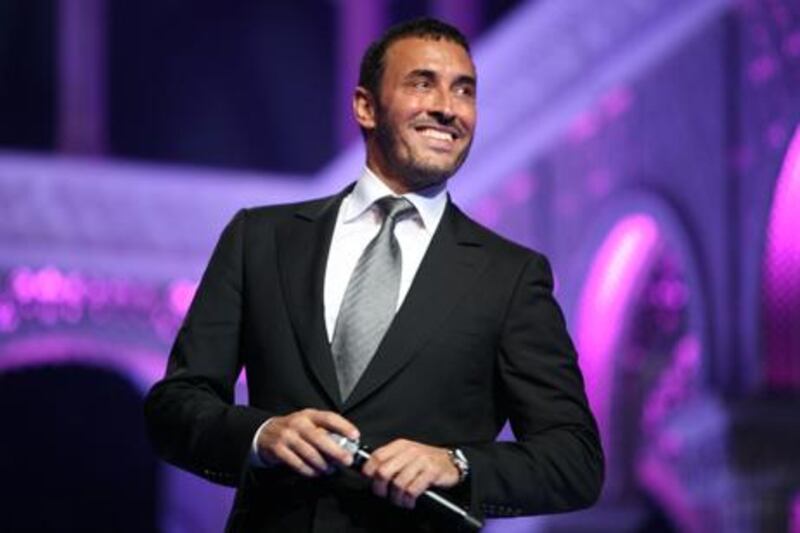The show
It's the biggest talent show Arabic audiences haven't seen, until now. Since its Dutch inception in 2010 as The Voice of Holland, the format has been sold to over 25 countries, including the UK, Australia, Brazil and Vietnam. The biggest franchise so far is the US version, whose coaching panel boasts of the singers Cee Lo Green, Christina Aguilera, Blake Shelton and Maroon 5's Adam Levine.
The coaches
Signing on to our region's edition is the Iraqi singer and poet Kadim Al Sahir, the Egyptian pop star and actress Sherine, the Tunisian composer-musician Saber Al Rebai and the Lebanese singer Assi El Helani.
It wouldn't have been surprising if these big names all thought twice about the opportunity as this is no easy gig. Whereas judges in Arabs Got Talent simply gave their 50 fils worth, the coaches, aided with a team of professional music trainers, have a more hands-on task and are responsible for cultivating the contestants' raw talent, in addition to providing emotional support.
"It is something that I am taking very seriously," said the Dubai-based Al Sahir. "I just want to give them the chance to give their best performance because it is all about them in the end."
The Egyptian actor Mohamed Karim has been tapped to host the show.
Audition process
To cast the net far and wide, auditions were held in major Arab cities earlier in the year. Aside from that, some contestants were personally scouted by the production team and were invited to appear on the series - so don't be surprised if you recognise some familiar voices.
While Arabs Got Talent was restricted to acts never been signed, The Voice offers a second chance to formerly-signed acts, including those who have already released albums. The only ones not allowed to join are contestants from the recently concluded second season of Arabs Got Talent. According to producers, they would have to wait for The Voice's second season next year to audition.
Listen without prejudice
The aim of the game is to literally find "the voice", seeking a winner defined by his or her vocal talent - as much as the visual medium of television allows for it.
The Voice comprises three stages: the first is the blind auditions where contestants perform in front of the celebrity panel, whose backs are turned against the singers. Robbed of the knowledge of the contestants' looks and appearance, the coaches are only engaged through their pipes. If impressed, coaches press their "I Want You" buzzer and turn around to discover their future protégé.
However - in the programme's most entertaining twist - if more than one coach shows interest in a performer, the tables are then turned and they must convince the contestants to select them as their mentor.
The blind auditions end with 12 contestants assigned to each of the four coaches, after which they enter a period of training.
The battle rounds
The second round will see half of the contestants eliminated from the show, courtesy of the battle rounds, where coaches - like Roman generals - select two team members for a vocal duel in front of a studio audience. At the completion of every sing-off, the coach picks which singer will advance.
The live shows
It's the stage of the competition that delivers the fears and tears producers love. This final performance phase has contestants from each team squaring-off live. After a series of individual performances, the television audience will decide who they want to remain in the show. The judges also get to select their top picks.
It is here coaches are often at their most emotional. Expect declarations of "but you are all like my children", before making the chop.
A "last chance" phase will be included - as in the recent season of the US version - where eliminated contestants give a last ditch performance to earn a coach's save; cue more tears and "you are like a father/mother to me" pronouncements.
The final
Each coach will have their one contestant left standing sing an original song, then the audience votes which from the four will be crowned The Voice. The winner receives a recording and distribution contract courtesy of Sony Music Middle East, MBC and Platinum Records. There is no cash prize in this series. As in Arabs Got Talent, semi-finalists also stand to receive some sort of entertainment contract mixing recording opportunities and television appearances, on MBC of course.
The Voice will premiere on MBC1 in September.






